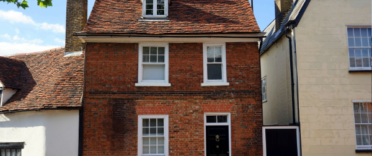 Reader Question
Reader Question
My husband and I are thinking about putting our property on the market. Unfortunately we did not know that we needed to declare with HMRC which property is our main one to avoid tax. Can we backdate it or something?
Darren's response
Hi there,
I'm guessing from the limited information in your question that you have a second property.
If you are talking about selling your main residence then it isn't usually necessary to make a declaration as the house you live in is deemed your main residence, and qualifies for Private Residence Relief.
It you are referring to selling a 2nd property then you could be potentially liable to Capital Gains Tax (CGT). How much tax depends on the circumstances surrounding the ownership of this property.
If, for example, the second property is a result of you both having properties and then moving in with each other, or buying a new home but not yet having sold your previous one, there is a allowance made for a transitional period.
As long as the property was your main residence at some stage you can sell it up to three years after you moved out, without it being regarded as the 2nd property (so avoiding a CGT liability).
If you actually live between both homes, eg a flat in town during the week and house in the country at weekends, then in those instances you can nominate which property is your primary residence. This must be done in writing by all parties that own the properties, and must be done within 2 years of the situation arising. However as a married couple you cannot nominate one property each.
If there is no nomination made within this period then HMRC will decide based on the obvious facts. It is common for people to try and avoid taxation by hoping HMRC won't notice, or by nominating a property that they were not living in just prior to sale. Neither of these options are particularly safe! You can 't just decide your main residence (without actually living there) to simply avoid tax. The prime residence will normally have evidence on public record, such as your credit report.
These details would include Electoral roll entries, Bank accounts held at the address, utility bills in your name, cars registered, driving licences etc., all information that HMRC can access. Conversely it is likely that a rented property will have none of these, and may in fact have such items held in the tenants name.
Hopefully that helps, but if you find yourself subject to CGT then you'll need to calculate the gain for tax purposes.This is basically the amount you sell it for (unless you sell it cheap, in which case HMRC will base it on what you SHOULD have sold it for)
Then you take from this the amount it cost you to buy it originally (or its market value at the time of death if inherited)
You can also deduct some costs, but the remainder is the amount that you will be taxed upon. (which will usually be at the rate of 28%)
HMRC have some good guidance notes etc, and the necessary forms, on their website you should refer to.
I hope that helps
Darren Amos
Financial Planning Designer
The material in any email, the Money to the Masses website, associated pages / channels / accounts and any other correspondence are for general information only and do not constitute investment, tax, legal or other form of advice. You should not rely on this information to make (or refrain from making) any decisions. Always obtain independent, professional advice for your own particular situation. See full Terms & Conditions and Privacy Policy

 Reader Question
Reader Question




